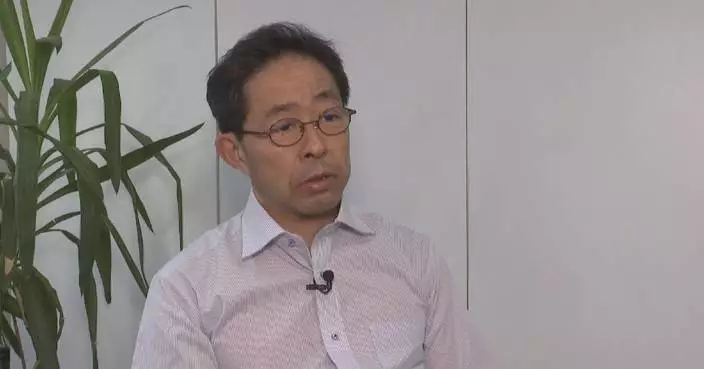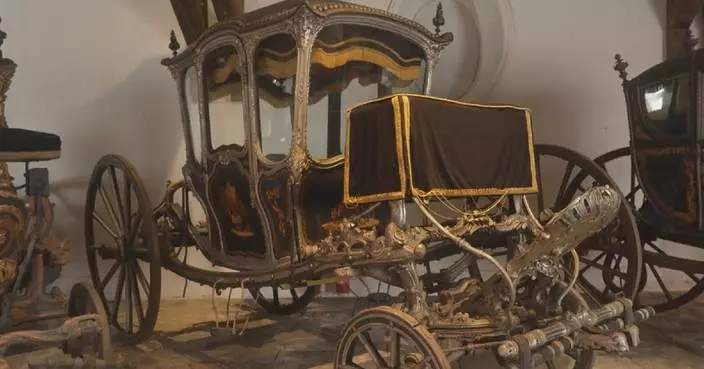With less than three months to the Paris Olympics 2024, a major wholesale market in east China is coming into focus as demand for Olympic-themed products begins to bloom.
The Yiwu International Trade Market in Yiwu City of east China's Zhejiang Province is renowned as the world's supermarket. Shop owners say they are already seeing the effects of the Olympic Games.
Tong Maoying has been running a shop selling flashing glow sticks for decades in Yiwu. Starting this year, she has seen more orders for glow sticks in the French national flag's color.
Other shop owners in the market noted a similar rise in sales.
"Sporting events drive the demand for our products, which in turn increases the volume of purchases. We've seen an increase of over 10 percent year-on-year in the first quarter of 2024," said Chen Xianchun, a shop owner.
Statistics from Yiwu City Customs showed that the city's exports of sporting goods in the first quarter of 2024 have reached 2.2 billion yuan (around 310 million U.S. dollars), up 46 percent year-on-year. Around 10 percent of the goods are exported to the European Union.
Beyond sporting goods, a toy in the market has also become unexpectedly popular this year due to its resemblance to the French symbol of le Coq Gaulois, or the Gallic Rooster.
"From hundreds to thousands, and now we have over 100,000 orders. Now the orders are lined up until June," said Wang Xuxue, a shop owner.
Yiwu is seeing rising exports to France this year with export volume reaching 540 million yuan (around 76 million U.S. dollars) in the first two months of 2024, up 42 percent year-on-year.
Among the exports are Lin Daolai's silicon bracelets. His company became an authorized producer for the Paris Olympics and received 1 million orders of the bracelets.
The reason, he believes, lies in the city's complete industrial chain of small commodities.
"The production of this bracelet needs cardboard and packaging. Because Yiwu is a market of small commodities, the price of cardboard and packaging is very competitive. So after competing comprehensively, we won," said Lin.
For many shop owners in Yiwu, foreign trade is now a major part of their business.
In the first quarter of 2024, the Yiwu International Trade Market saw a daily visitor flow of 210,000, a 160 percent increase year-on-year. About 3,500 foreign traders registered each day in the market.
To ensure smooth communications between shop owners and foreign purchasers, the market has been boosting efforts to help shop owners make headway in the realm of foreign trade, in part with cutting-edge technology.
Last year, the trade market began offering a service called "Digital Lady Boss". Vendors can upload a Chinese language video, and in about 10 minutes the video will be translated into any of the 36 foreign languages included in their database.
"This service is mainly to solve the difficulties of those involved in foreign trade. They may know some basic English, but they may not be very good at Arabic and French," said Zhang Yafang, an operation manager for Chinagoods.com.
Digital technologies, including live-streaming, big data and artificial intelligence, are also helping the shop owners in various ways, from connecting to foreign buyers to generating branding content. Now, over 10,000 shops in the market are using the service.

Chinese wholesale market exports more sporting goods as Paris Olympics approaches









